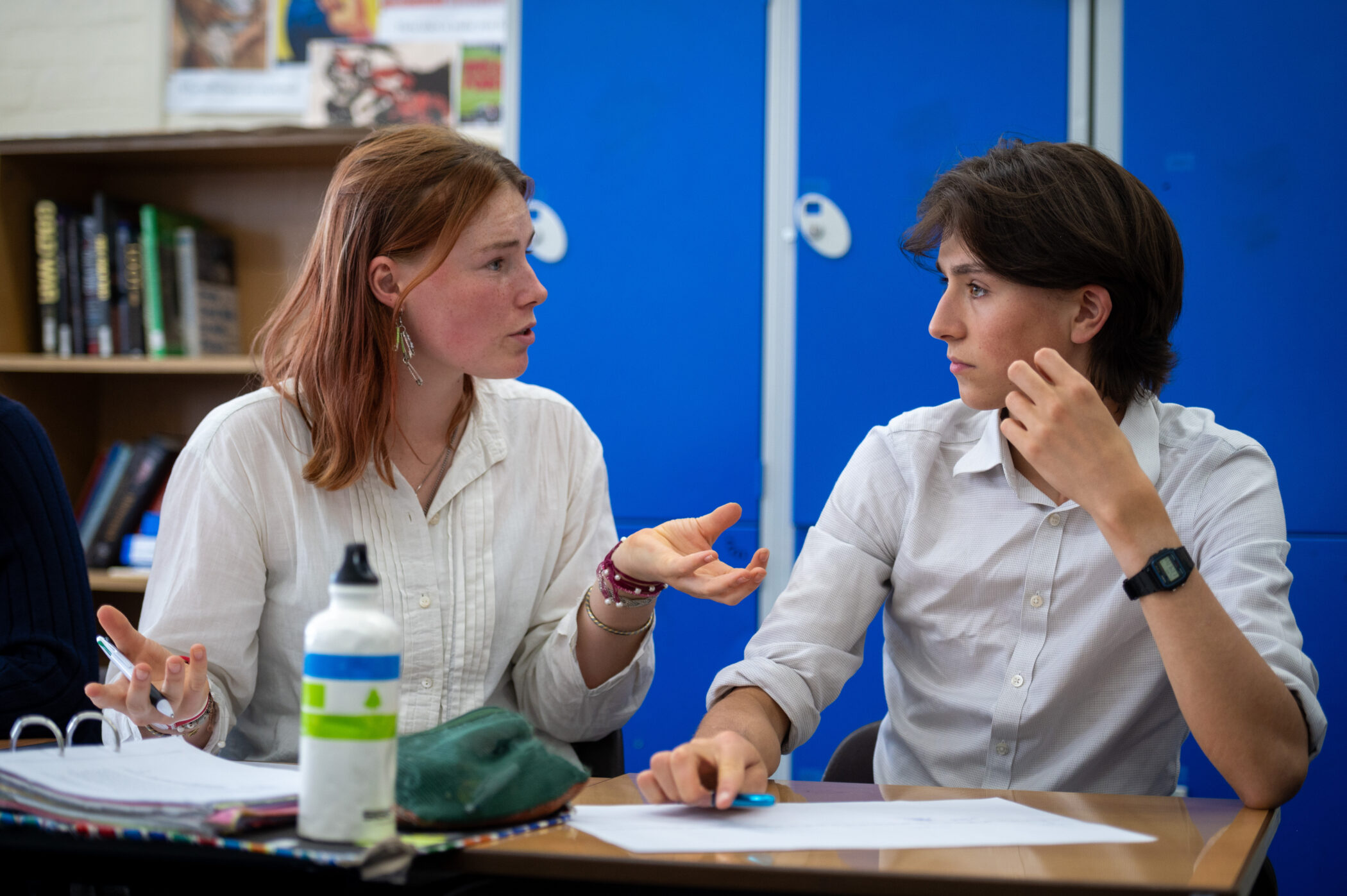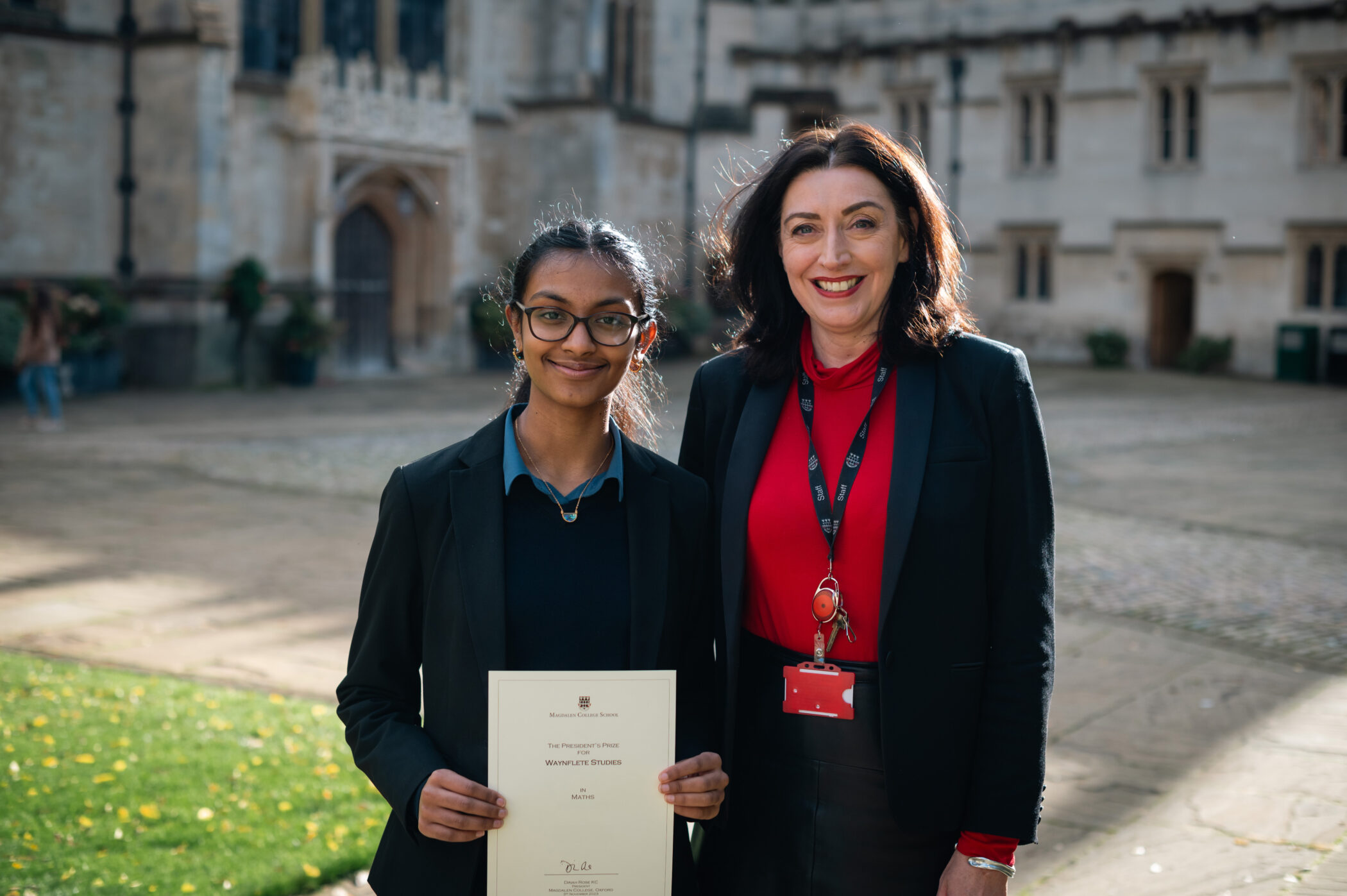A Level History
History in the Sixth form offers a chance to explore further the central aspect of all History: human motivation. Asking why things happened (and what were their effects) is an essential and rewarding experience and requires skills of critical analysis, discrimination, argument and persuasion.
History can be taken in conjunction with a wide variety of subjects. Traditionally, it is chosen to complement the arts, languages and social sciences but also works well for scientists looking for a slightly different fourth subject. Beyond the Sixth Form, History affords good preparation for a range of degrees and careers such as law, journalism and the media, teaching, business, accountancy and banking.
The Sixth form history course covers a broad chronological and geographical span, ranging from seventeenth-century British history to late modern French and Russian history. The English revolution sits alongside the French revolution in the Lower Sixth, with the Russian revolution of the early 20th century providing a counterpoint in the Upper Sixth year.
It is hoped that pupils will start to become aware of links and commonalities, taking them beyond the strict confines of what they need to know. The same principles of extension and independent thinking lie behind the coursework module, where pupils can choose their own questions, with guidance from their teachers.
One of the joys of History is that there is not always a ‘right’ answer, so it is important to test your ideas and develop your own justifications. However, a willingness to read widely is the most important requirement of a Sixth Form Historian. The school library boasts a well-stocked History section and the department has its own dedicated Sixth Form library.
Sixth Formers are encouraged to develop independent learning habits and to read around their courses. There is a weekly History Society on a Friday lunchtime where university academics deliver talks and field questions, culminating in the MCS annual History Conference. Recent topics have included the Ethiopian crisis in historical context, the life and afterlife of Mary Wollstonecraft and the rise and fall of the German Empire. In the Hilary Term, a Lower Sixth Reading Group meets; pupils often enter external essay competitions. Lower Sixth pupils also edit a Department Journal, to which all year groups are encouraged to contribute on a wide range of historical topics.
Course content: Lower Sixth
British period study
- The reign of James I
- The reign of Charles I to 1642
- The English Civil War
- Execution of Charles I and the Interregnum, 1646-1660 [Enquiry Topic]
Non-British period study
- The French Revolution
- The Rule of Napoleon 1774-1815
Course content: Upper Sixth
Thematic Study
- Russia, 1855-1964
Topic-based essay
- 3500-4000 words on a topic of the candidate’s choice
Examination arrangements
Unit 1: British period study and enquiry: 1 hour 30 minutes, 25% of marks
Unit 2: Non-British period study: 1 hour, 15% of marks
Unit 2: Thematic study and historical interpretations: 2 hours 30 minutes, 40% of marks
Topic-based Essay: Up to 4,000 words, 20% of marks
Recommended Preparation
| BRITISH | |
| Guy, John | Tudors: Very Short Introduction |
| Castor, Helen | Elizabeth I |
| Brigden, Susan | New World, Lost Worlds |
| Hutton, Ronald | Brief History of Britain |
| Worden, Blair | English Civil Wars |
| FRENCH | |
| Blanning, Tim | Pursuit of Glory, 1645-1815 |
| Voltaire | Candide |
| Price, Roger | Concise History of France |
| Hibbert, Christopher | French Revolution |
| Wilkinson, Richard | Louis XIV |
Further Inspiration
| BRITISH | |
| Rex, Richard | Tudors |
| Porter, Roy | Cult of Elizabeth |
| Nicholls, Mark | History of Modern British Isles, 1529-1603 |
| Smith, David | History Modern British Isles, 1603-1707 |
| Kishlansky, Mark | Monarchy Transformed |
| Purkiss, Diane | English Civil War |
| Hill, Christopher | World Turned Upside Down |
| FRENCH | |
| Blanning, Tim | Culture of power and power of Culture |
| Porter, Roy | Enlightenment |
| Schama, Simon | Citizens |
| Doyle, William | Oxford History of French Revolution |
| Fontana, Biancamaria | Germaine de Staël: A political portrait |
| Hardman, John | Life of Louis XVI |
| Burke, Peter | Fabrication of Louis XIV |
| Doyle, William | Old Regime France |
| Broers, Michael | Soldier of Destiny |
| Broers, Michael | Napoleon: the spirit of the age |
 MCS ranks among the top independent secondary schools, and in 2024 was awarded Independent School of the Year for our contribution to social mobility.
MCS ranks among the top independent secondary schools, and in 2024 was awarded Independent School of the Year for our contribution to social mobility.

 28 of our pupils achieved 10 or more 8 or 9 grades in 2024.
28 of our pupils achieved 10 or more 8 or 9 grades in 2024.
 In 2023-24, MCS received over £448,000 in donated funds.
In 2023-24, MCS received over £448,000 in donated funds.

